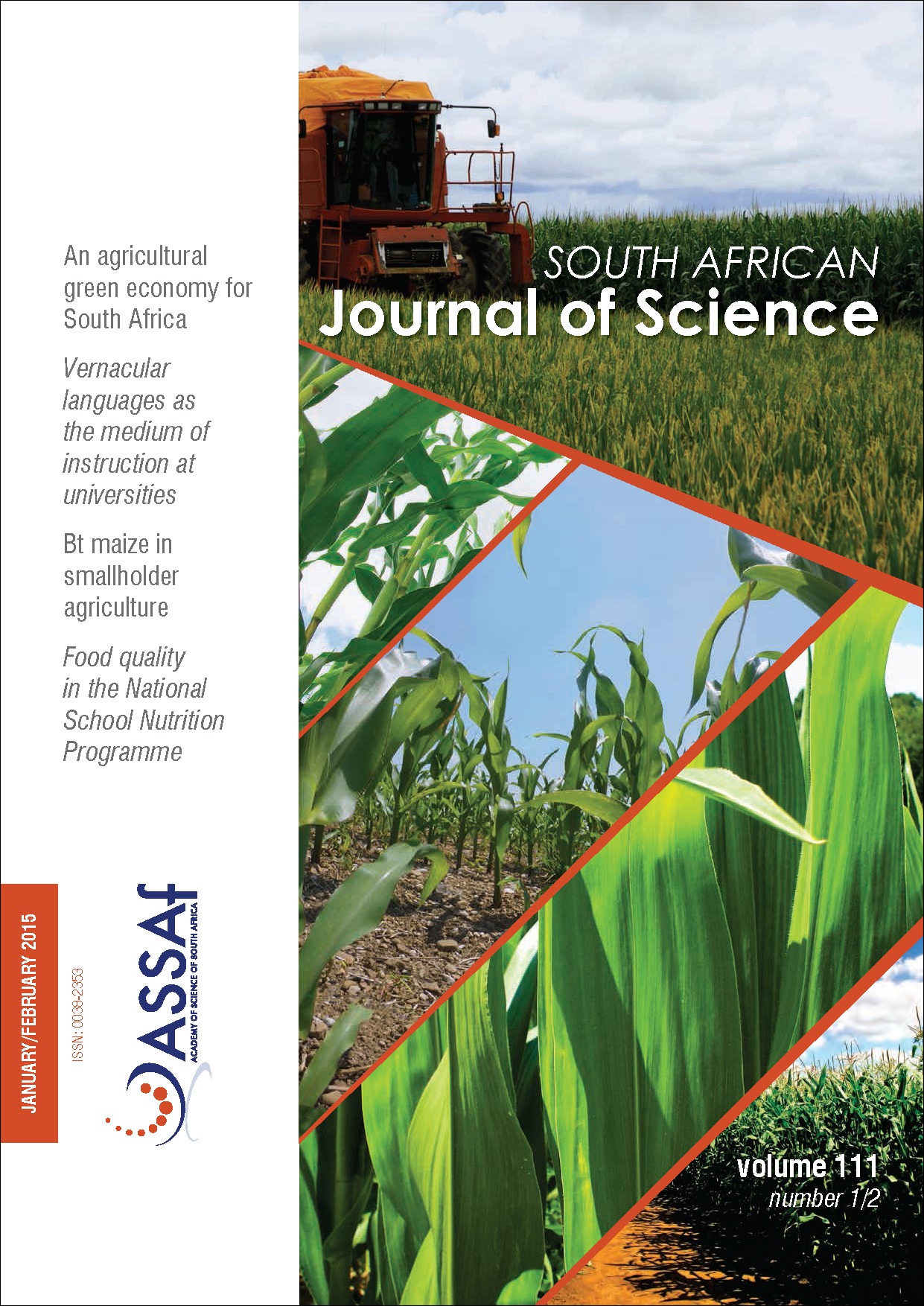Mother tongue as the medium of instruction at developing country universities in a global context
DOI:
https://doi.org/10.17159/sajs.2015/20140005Keywords:
universities, medium of instruction, mother language, globalisation, marginalisationAbstract
One of the factors attributed to poor performance of some indigenous students at universities in developing countries is the use of a second language – mainly English and to some extent French – as the language of instruction at the universities. Consequently, policymakers in some developing countries have introduced, or are debating the idea of introducing, local vernacular languages as the official languages of instruction at their respective universities. Indeed, learning the official language of instruction as a second language is an additional hurdle, which to some extent hinders some students from performing well in their university studies. Thus students whose mother tongue is used as the language of instruction at their universities have an advantage over students whose mother tongue is not the language of instruction at their universities. Policies regarding the medium of instruction at universities have a range of short-term and long-term implications, some of which may be easily overlooked yet they may have far reaching repercussions for current and future generations. In this paper, a repertoire of pertinent issues surrounding the use of vernacular languages at universities is explored. These issues include performance of students, quality of graduates produced in terms of employability, university overall productivity, innovation, university competitiveness in the wake of globalisation, preservation of the vernacular languages and contribution towards national as well as global socio-economic development.
Published
Issue
Section
License

All articles are published under a Creative Commons Attribution 4.0 International Licence
Copyright is retained by the authors. Readers are welcome to reproduce, share and adapt the content without permission provided the source is attributed.
Disclaimer: The publisher and editors accept no responsibility for statements made by the authors
How to Cite
- Abstract 991
- PDF 2718
- EPUB 200
- XML 324












.png)